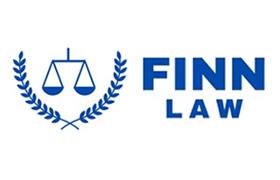Greenfield Center White Collar Crime Lawyer, New York
Sponsored Law Firm
-
 x
x

Click For More Info:
-
Finn Law Offices
12 Sheridan Ave. Albany, NY 12207» view mapAccident & Injury and Criminal Defense Action-Oriented Legal Advocacy
At Finn Law Offices, our attorney relies upon his experience and dedication to protect your rights in a personal injury, employment law, criminal defense or civil rights case.
800-872-6030
James E. Tyner
Traffic, White Collar Crime, Felony, DUI-DWI, Criminal
Status: In Good Standing *Status is reviewed annually. For latest information visit here Licensed: 22 Years
R. Scott Thomson
Litigation, Workers' Compensation, White Collar Crime, Disability
Status: In Good Standing *Status is reviewed annually. For latest information visit here
Stephen Talbot Rodriguez
Litigation, White Collar Crime, Administrative Law, Bankruptcy & Debt
Status: In Good Standing *Status is reviewed annually. For latest information visit here Licensed: 42 Years
Brian H. Breedlove
Motor Vehicle, Lawsuit & Dispute, White Collar Crime, Criminal, Accident & Injury
Status: In Good Standing *Status is reviewed annually. For latest information visit here
Tina Sciocchetti
Private Schools, White Collar Crime, Criminal
Status: In Good Standing *Status is reviewed annually. For latest information visit here Licensed: 32 Years
Julie Ann Nociolo
Colleges & Universities, White Collar Crime, Felony, Criminal
Status: In Good Standing *Status is reviewed annually. For latest information visit here Licensed: 10 Years
James Craig Knox
White Collar Crime, DUI-DWI, Criminal, Civil Rights
Status: In Good Standing *Status is reviewed annually. For latest information visit here
Michael Christopher Lynch
White Collar Crime
Status: In Good Standing *Status is reviewed annually. For latest information visit here Licensed: 42 Years
Jonathan Lloyd Becker
Landlord-Tenant, Traffic, Divorce, White Collar Crime
Status: In Good Standing *Status is reviewed annually. For latest information visit here
Robert James Callahan
White Collar Crime, DUI-DWI, Criminal
Status: In Good Standing *Status is reviewed annually. For latest information visit here Licensed: 47 Years
 Ryan M. Finn Albany, NY
Ryan M. Finn Albany, NY AboutFinn Law Offices
AboutFinn Law Offices